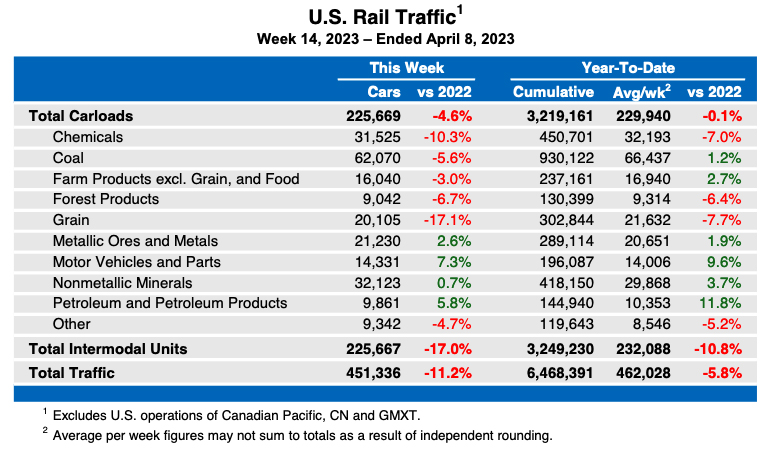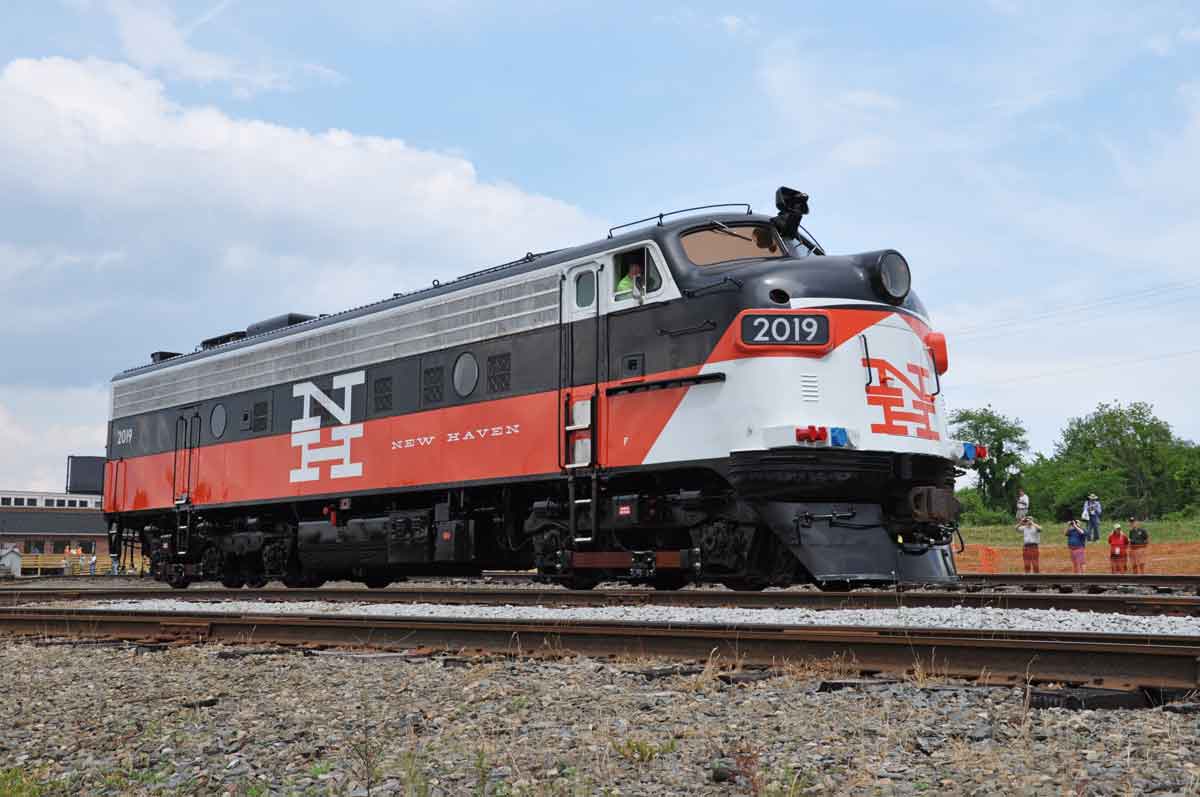
WASHINGTON — U.S. rail traffic saw its largest weekly drop so far this year, measured against 2022 traffic, in the week ending April 8, according to statistics from the Association of American Railroads.
Traffic for the week was 451,336 carloads and intermodal units, down 11.2% from the same week a year earlier. It is the first time this year that the decline from the corresponding week in 2022 has exceeded 10%. The overall figure included 225,669 carloads, down 4.6%, and 225,667 containers and trailers, down 17%.
Year-to-date totals, through 14 weeks of 2023, show carload traffic down 0.1% from 2022 and intermodal traffic down 10.8%, for an overall decrease of 5.8%.
North American traffic for the week, for 12 reporting U.S., Canadian, and Mexican rairloads, included 325,473 carloads, down 4% compared to the same week in 2022, and 293,300 intermodal units, down 19.4%. The combined total of 618,773 carloads and intermodal units represented a 12% drop. Overall North American traffic, through 14 weeks of 2023, is down 3.9% compared to the same period in 2022.














Yes, indeed. The weekly percentage decreases from last year seem to be getting larger by the week. Recession anyone?
Decrease in rail traffic can be a harbinger of an economic slow down.
Highways still seem packed. Could it be the continued abysmal service provided by the Class Is? Lots of promises made to regulators, Congress and the workers but few, if any, kept. Turn away customers and then continue to give lousy service to the ones left and you wonder why they continue to lose market share?